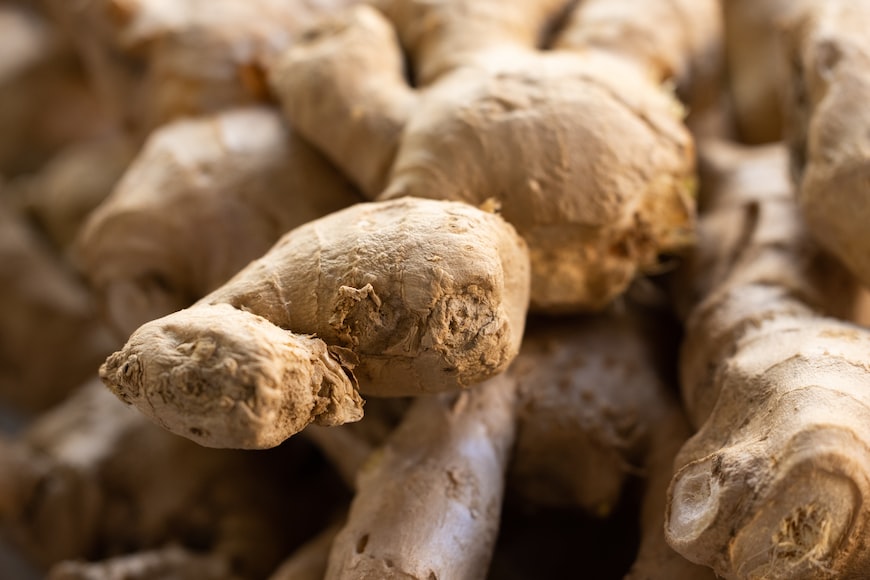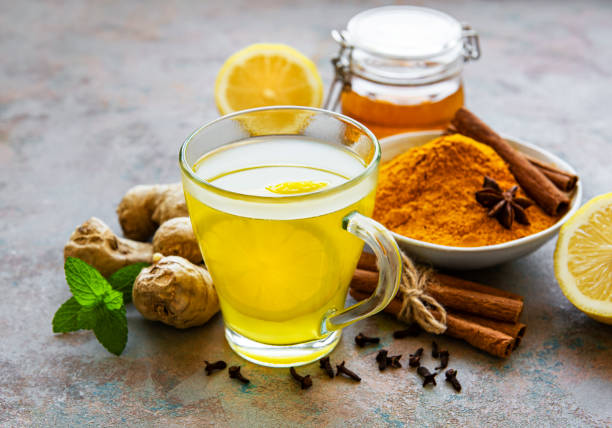Ginger is an incredibly versatile ingredient that has been used for centuries for both its culinary and medicinal benefits. It is a popular root crop in many countries and is widely used to flavor dishes, beverages, and even teas. But ginger offers more than just a unique and delicious flavor; it is also known for its powerful medicinal properties. From its ability to reduce inflammation and ease digestive issues to its potential for fighting infection and boosting immunity, the miraculous benefits of ginger are plentiful. In this article, we will explore all of the amazing benefits that ginger has to offer. We will discuss the various ways in which you can incorporate ginger into your diet and lifestyle, as well as any potential side effects and precautions to consider. So if you are looking to reap the fantastic benefits of this amazing root crop, read on!
What is Ginger?
Ginger is a root crop that is cultivated in warm climates. It is a tropical perennial plant that grows in tropical climates and has been used as a medicinal herb for centuries. It is used to flavor food and beverages, and is also incorporated into traditional medicines. Ginger has been proven to have many health benefits, such as easing nausea, coughing, pain, and digestive issues. The main active ingredient in ginger is gingerol, which is responsible for many of the health benefits of ginger. Ginger also has high levels of antioxidants and can help fight against cells that cause cancer. Ginger can be consumed in many ways, including raw, dried, or even as a tea. Ginger is a tropical perennial plant that is cultivated in warm, moist soils throughout the world. The rhizomes, or underground stems, of the plant are used in cooking and herbal remedies. Ginger is one of the oldest spices used in cuisines around the world and has long been used in herbal remedies. It is commonly used to treat nausea, vomiting, and indigestion, as well as to relieve muscle pain and cramps.
Reference Source
History of Ginger
Ginger is one of the oldest tropical spices and has been used in cuisines around the world for centuries. It is believed that ginger originated in India or Sri Lanka, and it was exported to the rest of the world via the Silk Road. Ginger’s medicinal properties have been revered in Eastern cultures for thousands of years and was used in traditional Chinese medicine and Ayurvedic medicine. It is believed that ginger made its way to America with the Portuguese explorer, Vasco de Gama, who brought ginger from India to Europe and America in the 1500s. Eastern cultures used ginger for cooking and herbal remedies, and it was brought to Europe for its culinary uses. Ginger was later brought to the Americas by colonists.
Benefits of Ginger
Ginger has been proven to have many health benefits, such as easing nausea, coughing, pain, and digestive issues. It has also been shown to have potential in the treatment of many other ailments. Let’s take a closer look at some of the most notable benefits of ginger.
- Anti-inflammatory: Ginger has been shown to reduce inflammation of the digestive tract, joints, and muscles. Ginger contains compounds called phenolics, which are thought to be responsible for these anti-inflammatory properties.
- Anti-oxidant: Ginger has high levels of antioxidants, which can help fight against cells that cause cancer, as well as protect the body from damage caused by free radicals.
- Digestive health: Ginger has been shown to help people suffering from indigestion and dyspepsia, or uncomfortable fullness or burning sensation in the upper abdomen after eating, by increasing stomach acid production. Consuming ginger in any form can help improve your digestion and protect against digestive disorders such as irritable bowel syndrome (IBS).
- Immune health: Ginger has been shown to have potential in the treatment of infections, such as intestinal infections, respiratory infections, and urinary tract infections.
- Nutrient absorption: Ginger is often taken with meals in order to enhance the body’s ability to absorb certain nutrients, such as iron and calcium.
- Joint health: Due to its anti-inflammatory properties, ginger has been shown to be effective in reducing joint pain, including joint pain associated with arthritis.
- Nausea and vomiting: Ginger is often taken to treat nausea and vomiting. The anti-nausea properties of ginger are thought to be due to the release of serotonin in the stomach when it is consumed.
Reference Source
How to use Ginger
Ginger can be consumed in a variety of ways, including raw, dried, or even as a tea. It is most commonly used in cooking, however, as a flavoring agent, and can also be used in herbal teas. Ginger can be used both fresh and dried, and dried ginger can be easily rehydrated. If you choose to consume ginger fresh, you should store it in a dark, cool place, such as the refrigerator, to prevent it from wilting. When cooking with fresh ginger, it is best to finely grate or chop the ginger so that its flavor can be easily absorbed. If you prefer to use dried ginger, you can either add it to your dish when it is cooking, or steep it in water to create a flavorful tea.
Types of Ginger
There are two types of ginger: fresh and dried. Fresh ginger can be found fresh in the produce section of most grocery stores, while dried ginger can be found in the spice section of most grocery stores. Fresh ginger is best when used within a couple of weeks of purchasing it. When purchasing ginger, look for it to be firm with smooth skin and no signs of softness or shriveling. Fresh ginger can be kept in the refrigerator for up to two weeks. Dried ginger can be stored in a cool, dry place for up to a year.
Ginger can have potent side effects when consumed in large quantities or by those who are sensitive to it. When taken in high doses, ginger may cause nausea and vomiting, especially in children. When consuming dried ginger, keep in mind that it can be more potent than fresh ginger, so you may need to use less than what you would normally use.
Ginger has a number of health benefits and is generally considered safe to consume. However, it is important to note that ginger can interact with certain medications. Ginger can increase the effects of blood thinning medications, such as warfarin, so those who take these medications should consult with their doctor before consuming ginger. Ginger can also interact with other medications, including NSAIDs and acetaminophen, so it is best to speak with your doctor if you are on any medications and are planning to add ginger to your diet. Additionally, pregnant women should take caution when consuming ginger, as it has been linked to miscarriage in rodents.
Reference Source
Recipes featuring Ginger
Ginger is a versatile ingredient that can be used in many different ways. Here are a few ginger-infused recipes to get you started:
- Ginger and Turmeric Smoothie: This delicious smoothie is packed with beneficial ingredients, including ginger and turmeric, which have potent anti-inflammatory properties.
- Ginger-Lime Mashed Sweet Potatoes: These sweet potatoes are a delicious and nutritious side dish for any meal.
- Ginger and Turmeric Salmon: This salmon is a flavorful and nutritious dish that can be prepared in minutes.
- Ginger and Turmeric Tea: This warm and tasty tea is a great way to benefit from the health benefits of ginger and turmeric.
Summary of the benefits of Ginger
Ginger has been used for centuries for its medicinal properties. It is a flavorful herb that is used in many recipes and beverages. It is also known for its powerful anti-inflammatory, anti-oxidant, and digestive health benefits. The main active ingredient in ginger is gingerol, which is responsible for many of these health benefits. Ginger can be consumed in many ways, including raw, dried, or even as a tea. There are two types of ginger: fresh and dried, and fresh ginger can be stored in the refrigerator between two weeks and two months. Ginger has been proven to have many health benefits, such as easing nausea, coughing, pain, and digestive issues. It has also been shown to have potential in the treatment of many other ailments. When you are in search of a tasty herb that can provide you with potent health benefits, ginger is a great choice.

It's my pleasure to introduce myself. I'm SHEIKH from Bangladesh.Recently I have passed my semester final Deploma in Textile and Now I want to BSC a private university.I wish that I study together with the job.Textile and Garments job is so hard that is not possible to continue study and job so i want to do something on online. That why i am come here.I have a 6 members in my family. I have a. Two brothers and one sister and also parents.My father is a business man. My mother is a housewife and brother are doing job and sisters studying.
My favorite game football but till a long time I can't play it because I don't get time to play and also my health condition is not good.
My favorite Food Biryani and Meat and Khichuri.I like Jhal very much.My favorite Colors are Black and White.
My favorite activity is Photography, Crypto, English learning, Content Writing.......
If You Want To Stay With Me
TwitterTelegram
Discrod Instagram
Hive
Reference:
https://en.m.wikipedia.org/wiki/Ginger
https://www.hopkinsmedicine.org/health/wellness-and-prevention/ginger-benefits
https://www.acouplecooks.com/ginger-recipes/
TwitterTelegram
Discrod Instagram
Hive
Reference:
https://en.m.wikipedia.org/wiki/Ginger
https://www.hopkinsmedicine.org/health/wellness-and-prevention/ginger-benefits
https://www.acouplecooks.com/ginger-recipes/

